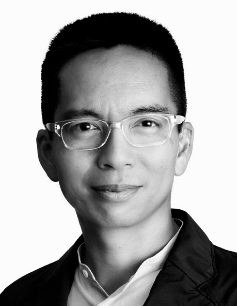Kleiner Perkins is making a big push into product development and design. The firm just debuted its design and product engineering initiative, called KPCB ProductWorks. And Kleiner named former RISD President John Maeda as its first design partner. One of Maeda’s first roles is leading the design fellows program, which accepts applications for its second year in operation today.
We spoke with Maeda to hear more about the design fellows program, and his views on the rise of design in the technology world. “I wish it had been available when I was an undergrad,” he says of the fellowship, which matches promising design students with startups, providing mentorship, real experience and more.
Launched in 2012, the Design Fellows program is a three-month work-based program intended to give top design students exposure to working on design challenges at KPCB-funded start-ups such as Coursera, Flipboard, Klout, Nest, One Kings Lane, Opower, Shopkick, Square and Zaarly.
As part of the program, KPCB also created a “design council” to serve as mentors and leaders to the Design Fellows, as well as help other KPCB startups with design-focused initiatives, which is led by Kleiner partners Megan Quinn and Michael Abbott.
As Maeda explained to me, “As the world is maturing, design is how we differentiate technology…A few decades ago, the ability to make a website was a rare skill, but now so many can do this. We want something more that helps us connect the web to us. And design plays this role…it’s a way of differentiation.”
He adds that he has seen the increasing trend of designers who want to move to technology as well. He writes in a blog post: “For design students, the entrepreneurial environment can be a strong fit. Designers are not afraid to get their hands dirty and to go deep in their work – exactly what a startup environment demands. The fluid structures and rigorous work ethic that can seem daunting to those of another mindset will feel like home to those with a creative bent. In my time as president of RISD, more than 70% of graduating students said they wanted to do something entrepreneurial after graduation.”
Maeda believes that beyond the experiences quotient, mentorship is one of the key aspects of the program that can make a difference for a designer and his or her career.
“Most people think of design as making something pretty or cool,” Maeda tells me. “But design is about how something makes you feel, it’s a way of connecting with a product on an emotional level.”
